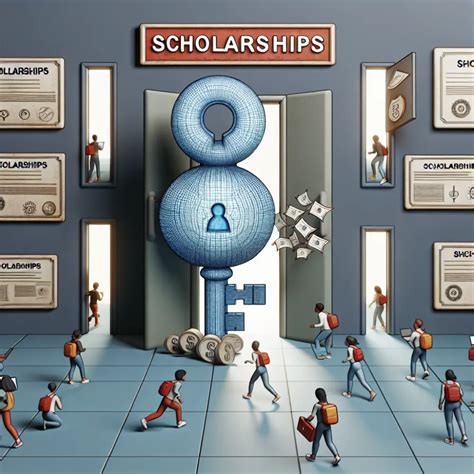Empowering Students with Scholarships for Public Policy Studies
Public policy scholarships provide an invaluable opportunity for ambitious students to pursue higher education in the critical field of public policy. These scholarships can transform aspiring policy leaders’ dreams into a reality, empowering them to make a tangible difference in society.

Need for Public Policy Scholarships
According to the National Center for Education Statistics, the average cost of tuition and fees at a public four-year college increased by 26% from 2010 to 2020. This escalating cost of higher education has led to a growing demand for scholarships, particularly in fields like public policy where the pursuit of graduate degrees is often essential.
Types of Public Policy Scholarships
A diverse range of public policy scholarships is available to students based on their academic merit, financial need, and career aspirations.
- Merit-Based Scholarships: Awarded to students with outstanding academic achievements, these scholarships recognize excellence in scholarship and encourage students to continue pursuing their academic goals.
- Need-Based Scholarships: Designed to support students from low-income backgrounds, these scholarships help remove financial barriers and ensure that all qualified students have the opportunity to pursue public policy studies.
- Career-Specific Scholarships: Intended for students planning to pursue specific policy-related careers, these scholarships support their specialized training and professional development.
How to Apply for Public Policy Scholarships
Applying for public policy scholarships requires research, preparation, and attention to detail. Here are some tips to enhance your chances of success:
- Start Early: Begin researching scholarships as soon as possible. Deadlines for applications vary widely, so starting early gives you ample time to identify relevant opportunities.
- Meet Eligibility Requirements: Carefully review the eligibility criteria for each scholarship to ensure you meet the qualifications and application requirements.
- Craft a Strong Essay: The scholarship essay is often the most critical component of the application. Take time to develop a compelling essay that highlights your passion for public policy, your academic achievements, and your career aspirations.
- Seek Letters of Recommendation: Request letters of recommendation from professors, mentors, or employers who can attest to your academic ability, leadership qualities, and commitment to public service.
Notable Public Policy Scholarships
Numerous organizations offer prestigious public policy scholarships to aspiring students. Here are a few notable examples:
Harris Public Policy Fellowship
- Awarded by: University of Chicago
- Amount: $60,000 per year
- Eligibility: Outstanding minority students pursuing a master’s degree in public policy
Schwarzman Scholars
- Awarded by: Schwarzman College, Tsinghua University
- Amount: Full scholarship covering tuition, fees, living expenses, travel costs, and a summer internship
- Eligibility: Exceptional students from around the world pursuing a one-year master’s degree in public policy at Tsinghua University
Ford Foundation Fellowships
- Awarded by: Ford Foundation
- Amount: Up to $50,000 per year
- Eligibility: Doctoral students pursuing research and training in public policy-related fields
Benefits of Public Policy Scholarships
Public policy scholarships offer numerous benefits to recipients:
- Financial Support: Scholarships significantly reduce the financial burden of higher education, allowing students to focus on their studies and professional development.
- Prestige and Recognition: Receiving a prestigious public policy scholarship is a testament to academic excellence and commitment to public service, enhancing employability and career prospects.
- Networking Opportunities: Scholarship programs often provide opportunities for grantees to connect with professionals and other scholars in the field of public policy, fostering valuable relationships and mentorship.
Common Mistakes to Avoid
To increase your chances of scholarship success, avoid these common mistakes:
- Applying Late: Missing application deadlines can disqualify you from consideration, so make sure to submit your materials on time.
- Not Proofreading: Errors in your application materials can create a negative impression. Carefully proofread your essay, resume, and other documents before submitting them.
- Not Tailoring Your Application: Each scholarship has specific requirements and expectations. Customize your application to align with the objectives of each scholarship.
- Not Seeking Guidance: Don’t hesitate to reach out to professors, advisors, or scholarship administrators if you have any questions or need assistance. They can provide valuable insights and support throughout the application process.
Pros and Cons of Public Policy Scholarships
Consider the following pros and cons when evaluating public policy scholarships:
Pros:
- Reduced financial burden
- Enhanced employability
- Networking opportunities
- Recognition for academic excellence
Cons:
- Competitive application process
- May have eligibility restrictions
- May require additional commitments, such as mandatory internships or research projects
Conclusion
Public policy scholarships empower students to pursue their passion for shaping society and making a positive impact on the world. By providing financial assistance, recognizing excellence, and fostering valuable connections, these scholarships pave the way for a future generation of policy leaders to address complex social, economic, and environmental challenges.
Keywords
- Public Policy Scholarships
- Graduate Studies
- Public Service
- Financial Aid
- Merit-Based Scholarships
- Need-Based Scholarships
- Career-Specific Scholarships
- Application Tips
